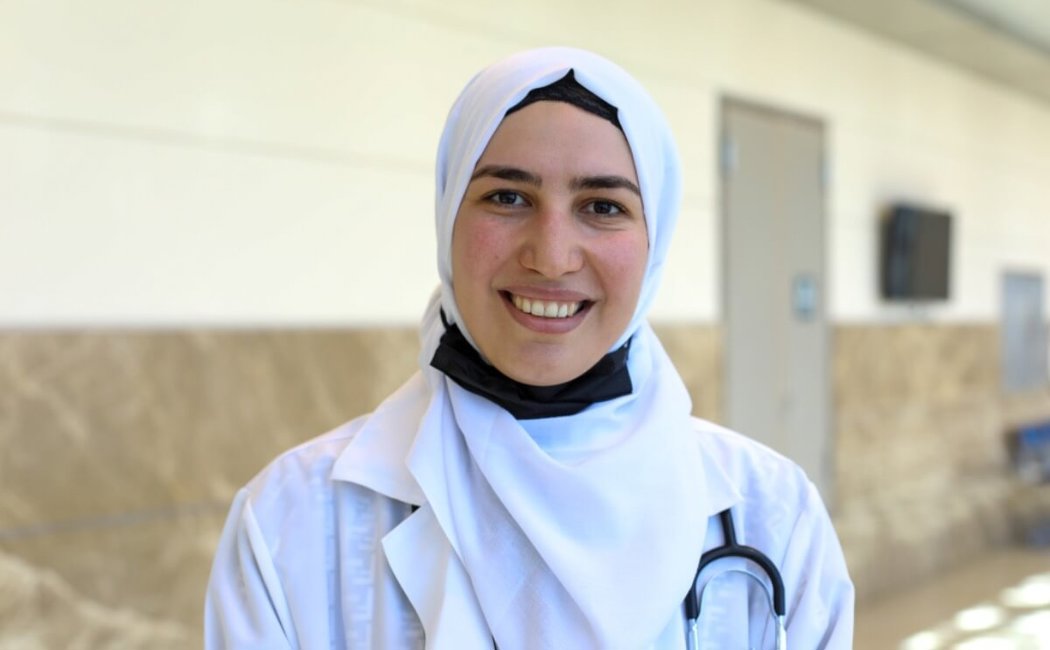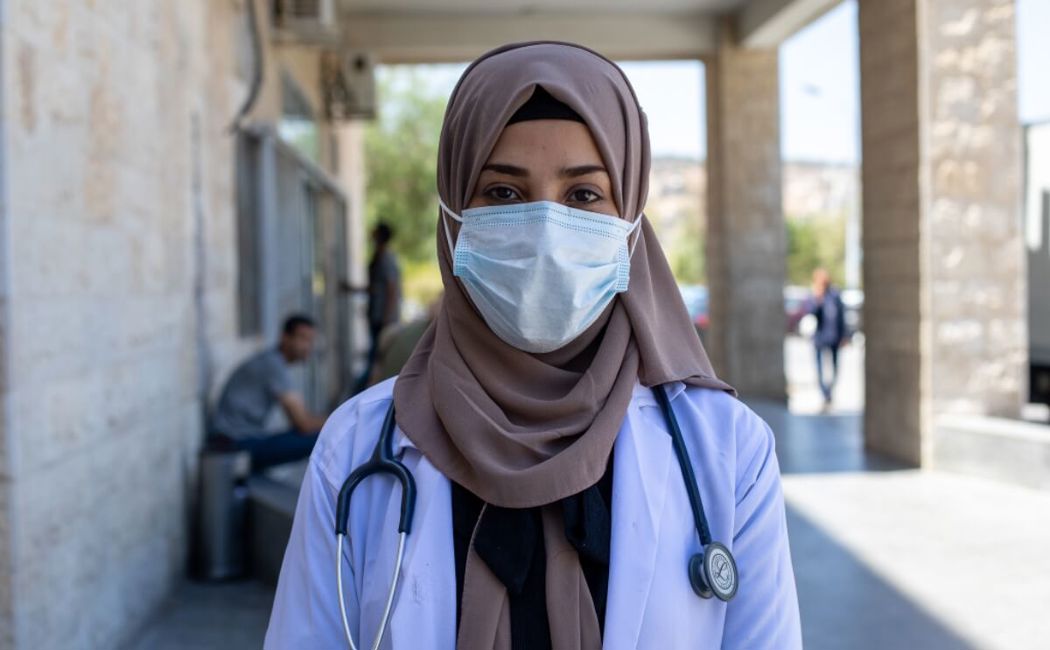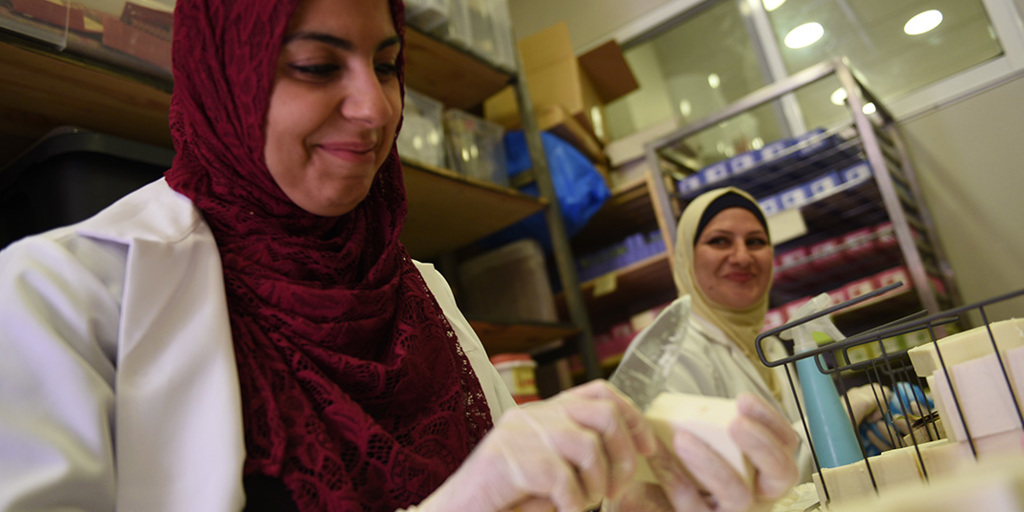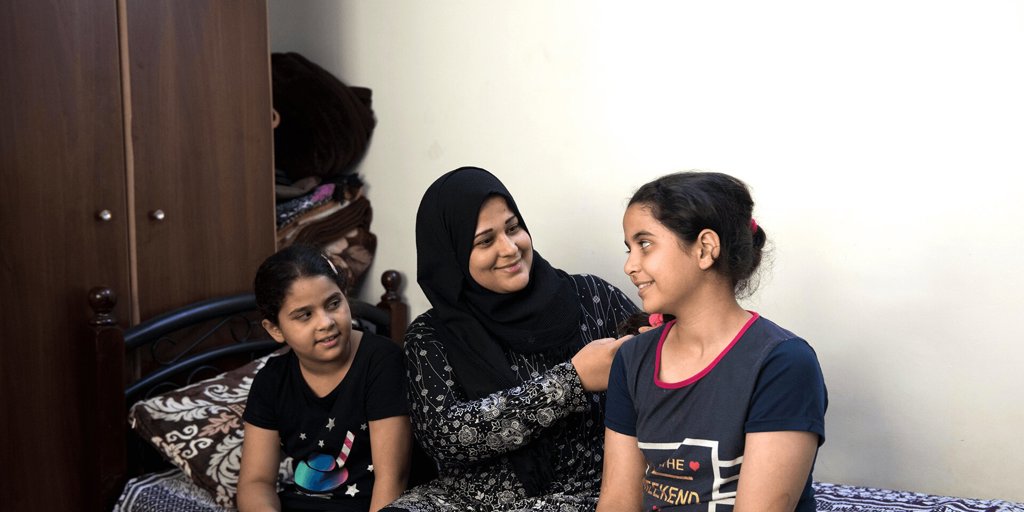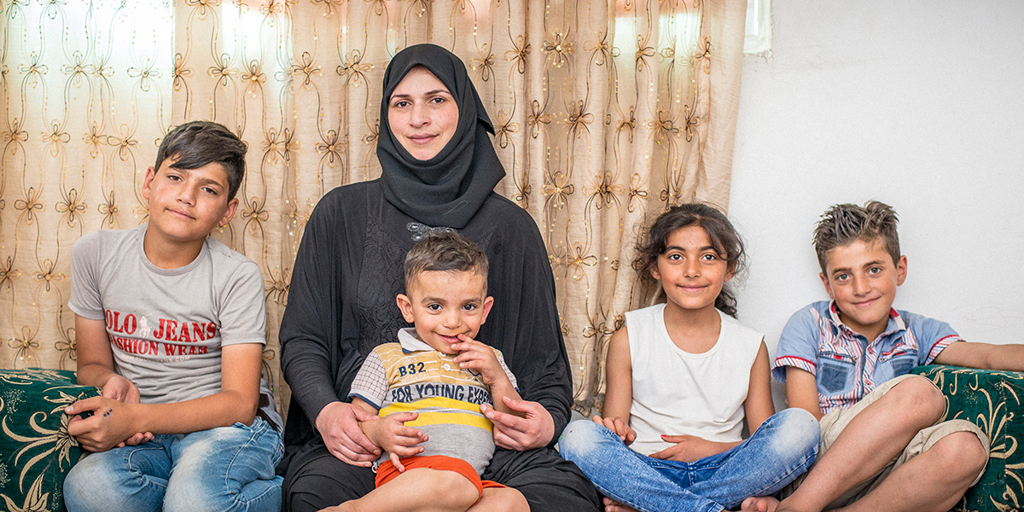Refugees want to contribute to their host communities – and getting a job is one of the most effective ways to do that. But in many countries, including Jordan, work permits for refugees are scarce and authorities don’t always recognise professional qualifications gained elsewhere.
This is one of the reasons why we founded the Leading Women Fund, to help support Syrian refugee women who are heads of their households in Jordan, trying to raise their families and pay bills with little opportunity to find work.
However, progress is being made, and last month UNHCR was delighted to announce that six refugee medical specialists – surgeons, anesthesiologists and generalists – have started working in hospitals and clinics across Jordan as United Nations Volunteers.
The employment of these health professionals marks a major step forward in creating additional livelihood opportunities for refugees in Jordan. It follows months of discussions between the Ministry of Health and UNHCR about how refugees can contribute to stopping the spread of COVID-19.
“This is a great opportunity and at the same time, an important responsibility for refugees, who have been eager to directly contribute to the national COVID-19 response,” says UNHCR Representative to Jordan, Dominik Bartsch.
“As doctors, nurses, and a wealth of other professions, there is a huge potential for refugees to give back to the country that has been generously hosting them.”
Back in October 2020, UNHCR put out a call to refugees who had previous experience and qualifications of working in medical professions. It received over 300 responses.
The six medics chosen to work are all specialist doctors from Syria, Iraq and Yemen, who between them have several years of experience. More doctors are expected to join this initial cohort.
Jordan has coped comparatively well with the pandemic. However, case numbers are rising again and the country is now vaccinating at a rate of about 17,000 doses a day.
From the beginning of the COVID-19 pandemic, refugees have been able to access the same health care and medical treatment as Jordanian citizens. Since January, they have been receiving the COVID-19 vaccine alongside their Jordanian hosts.
“As a refugee, I know what it feels like to lose your loved ones, your home, and your country,” says Dr. Waleed, a dermatologist and Iraqi refugee who is working in Basma Hospital in Irbid.
“I am fortunate to have this opportunity to provide aid and to be productive. We feel our value in being active members of our communities.”
















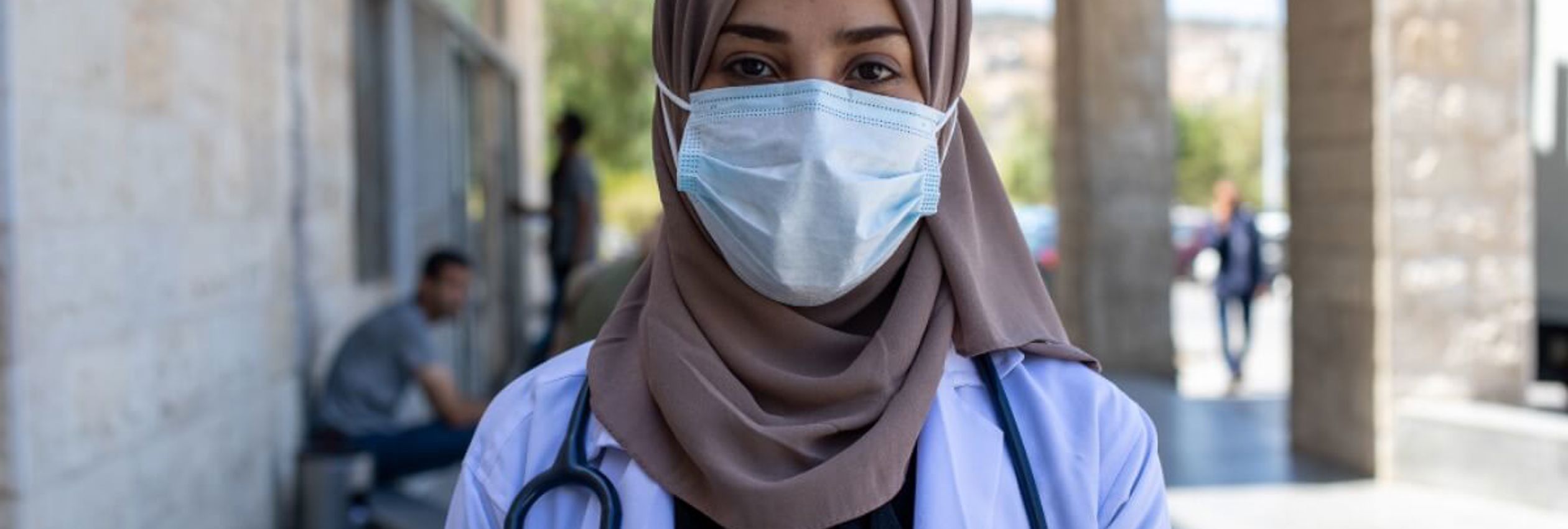
 Jordan
Jordan
